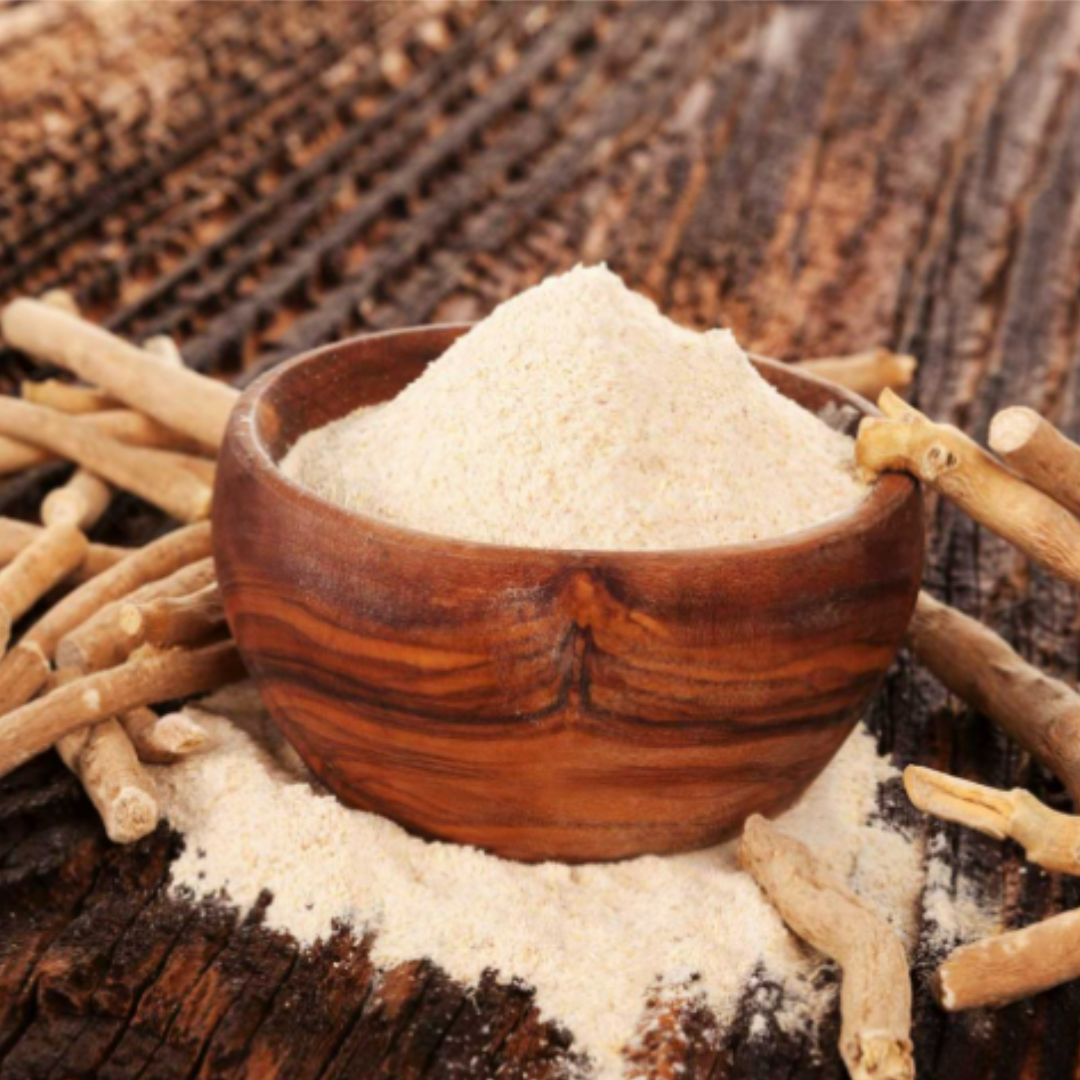
The Health Benefits of Ashwagandha Powder for Mind and Body
Ashwagandha powder and supplements are quickly rising on the scene as a natural answer for a myriad of issues ranging from anxiety, stress, and brain fog to poor libido, insomnia, and immune weakness. Understanding the benefits and drawbacks are important, because let's face it, who doesn't suffer from a few of those problems on occasion (or more), right? But, just how effective is Ashwagandha for these purposes, and can there be problematic side effects?
What is Ashwagandha?
Often referred to as "Indian ginseng" or "winter cherry", Ashwagandha is a small shrub native to India and North Africa. Scientifically known as Withania somnifera, it is a superstar herbal adaptogen that has been used for centuries in traditional Ayurvedic medicine for its rejuvenating properties.
The Benefits:
1. Stress Reduction, Anxiety Relief, and Better Sleep:
Ashwagandha is renowned for its ability to combat stress and promote relaxation. As a natural adaptogen, Ashwagandha helps the body adjust to stressors by regulating the production of stress hormones like cortisol - oooo, did anyone else just think "weight goals"? A quick Google search will give you a plethora of studies showing that Ashwagandha can significantly reduce stress levels and symptoms of anxiety, providing a natural alternative to conventional medications.
When taken an hour before bedtime, Ashwagandha is a welcome answer for those who suffer with anxious insomnia. It calms the mind allowing for sleep to come more naturally. It also is an excellent alternative to melatonin which, with too much use, can cause the body to stop making as much on its own. Not. Good.
2. Energy Enhancement, Adrenal Support, Fatigue Reduction, and Vitality:
Ironically, the same herb that can reduce or eliminate stress and anxiety is also prized for its ability to boost energy levels and combat fatigue. By supporting adrenal function and improving mitochondrial health, Ashwagandha helps increase stamina and endurance, making it an ideal supplement for promoting vitality and overall well-being - not to mention that more intense workout you may have wanted to achieve.
3. Improved Cognitive Function:
Research suggests that Ashwagandha may also have neuroprotective effects which enhance cognitive function and memory. By reducing oxidative stress and inflammation in the brain, Ashwagandha helps support mental clarity, focus, and overall cognitive performance, making it a valuable ally for those seeking to optimize brain health.
4. Hormonal Balance and Libido Enhancement:
Ashwagandha has been traditionally used to support hormonal balance and reproductive health in both men and women. It has been shown to regulate thyroid function, balance sex hormones, increase testosterone and sperm count in men, and improve libido and sexual function for both sexes. It also proves to be a valuable herbal adaptogen for menopausal or perimenopausal women who need a little help in the desire department. For those struggling with hormonal imbalances or sexual dysfunction, Ashwagandha offers a natural solution for restoring vitality and intimacy.
5. Immune Support and Antioxidant Protection:
Rich in antioxidants and immune-boosting properties, Ashwagandha helps strengthen the body's defenses against infections and diseases. By neutralizing free radicals and reducing inflammation, Ashwagandha supports overall immune function and helps protect against chronic diseases, making it an invaluable addition to your wellness arsenal.
Now, The Side Effects:
Some possible side effects of Ashwagandha include upset stomach, vomiting and diarrhea if taken in too large of a dose. If you notice any of these issues, stop taking the herb right away.
Pregnant and breastfeeding women should never take Ashwagandha as there is some evidence it may induce miscarriages, and there is currently no available safety information about taking this herb while breastfeeding so it is better to err on the side of caution.
People taking medications for diabetes, blood pressure, immune system suppression, thyroid problems, or sedatives should not use ashwagandha unless they have consulted a doctor first. Also, if you are to have surgery that requires anesthesia, you should stop taking Ashwagandha two weeks before the procedure as it can slow down your central nervous system. You don't want too much of a good thing.
Those with hyperthyroidism should only take Ashwagandha under the controlled supervision of a doctor, as it may increase thyroid function even more.
It is also possible that ashwagandha may increase symptoms of autoimmune diseases like multiple sclerosis, lupus and rheumatoid arthritis.
How Much Ashwagandha Powder Per Day is Safe?
Every body is different so that amount of Ashwagandha to take will depend where you will get the most benefit. It is recommended that you start with 300-500 mg / day to see how your body handles it. You can slowly increase your dosage up to 1000 - 1500 mg/ day, with some studies suggesting as high as 6000 mg as beneficial.
Again, pay attention to your body and give it what it needs. More is not always better, despite what crazy Uncle Bob says.
Conclusion:
As you can see, Ashwagandha offers a wealth of benefits for both body and mind, making it a valuable addition to any wellness routine. From stress reduction and energy enhancement to cognitive support and immune protection, Ashwagandha has earned its reputation as a potent adaptogen with transformative powers. Whether you're seeking relief from stress and anxiety or looking to optimize your overall health, Ashwagandha may just be the solution you've been searching for.
Ready to experience the incredible benefits of Ashwagandha for yourself? Explore our premium selection of Organic Ashwagandha Powder or our additional herbal powders today.

